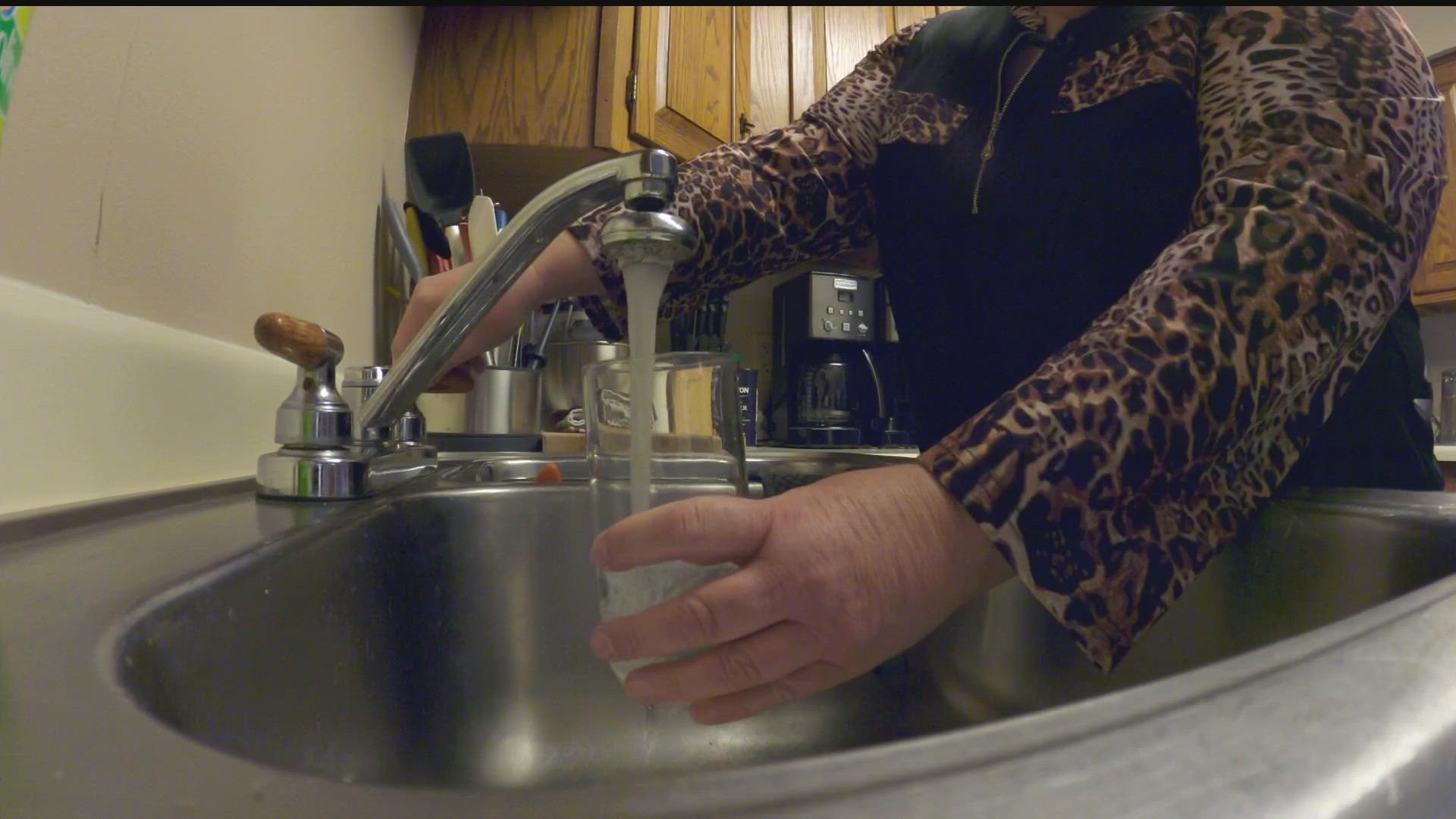INVER GROVE HEIGHTS, Minn. — The City of Inver Grove Heights has notified residents that elevated radium levels were detected in its drinking water supply.
On Jan. 30, 2023 Minnesota Department of Health (MDH) informed the city that quarterly samples showed higher radium levels than the state's allowable standards. Test samples revealed the combined radium level was at 6.0 picoCuries per liter (pCi/L), above the allowable level of 5.4 pCi/L.
The U.S. Environmental Protection Agency (EPA) defines radium as "a naturally occurring radioactive metal. Radium is a radionuclide formed by the decay of uranium and thorium in the environment." All isotopes of radium are radioactive, and decay to produce radon gas.
"Although we are all exposed to radium that occurs naturally in our environment, large doses of radium over many years may increase the risk of developing cancer for some people," the city explained in a public notice sent to residents.
That is especially concerning to Kim Mathes, who moved to Inver Grove Heights three years ago.
"The most concerning would be that radium does cause lung cancer and bone cancer," said Mathes who has several health problems. "I think the older you get the more health conditions you have and when you first read that it’s kind of a shock."
The notice says city utilities staff have taken steps to combat the higher-than-allowable levels, including "modified pumping and chemical treatment techniques" in the city's water treatment plant in order to bring the radium levels down. Water testing frequency has also been increased.
"This really is a single source thing which really does help us target our treatment efforts," said Public Works Director Brian Connolly. "We feel really confident about what we’re doing."
Sand filters are said to be the most effective way to remove radium from water but the city's filers are older and less effective than when new. They are due to be replaced in a project scheduled for 2024.
Inver Grove Heights officials emphasize that this is not an emergency situation, and are advising residents to continue using the drinking water as normal. Those with health concerns are advised to speak with their healthcare professional on how to proceed.
"It is my responsibility, and the staff here at City Hall, to build that confidence and that trust in us and we recognize it is difficult," said Connolly.
Residents with questions or concerns about their home water treatment systems should contact their systems manufacturer.
"Residents might want to make a change themselves," said Mathes. "All the cooking and baking I do, I feel like I may have just poisoned people on my floor."
For more information, visit this website.
Watch more local news:
Watch the latest local news from the Twin Cities in our YouTube playlist:

